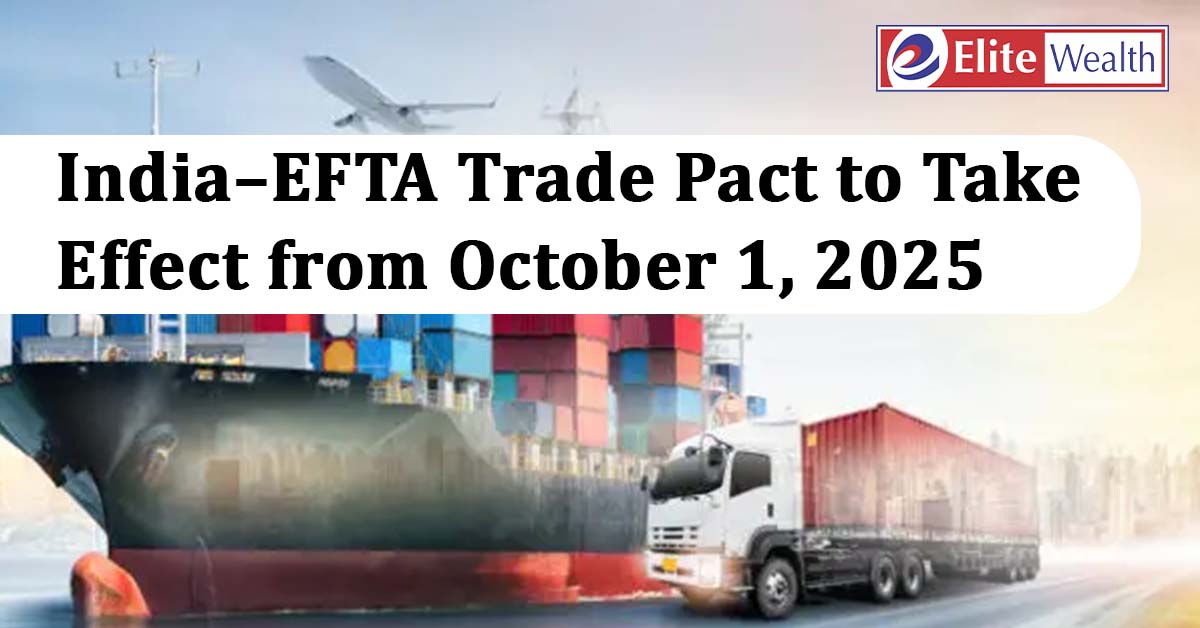
New Delhi, September 3, 2025 – India’s free trade agreement with the European Free Trade Association (EFTA)—comprising Iceland, Liechtenstein, Norway, and Switzerland—will come into effect on October 1, 2025, according to reports. The two sides had signed the Trade and Economic Partnership Agreement (TEPA) on March 10, 2024.
Record Investment Commitment
The agreement includes a binding investment pledge of $100 billion from EFTA members over 15 years—$50 billion in the first decade and another $50 billion in the following five years. The deal is expected to generate around one million direct jobs in India, marking the first time New Delhi has secured a firm investment commitment in an FTA.
Market Access for Key Exports
Under the pact, India will lower or eliminate tariffs on a range of imports from EFTA nations, including Swiss watches, chocolates, and cut and polished diamonds. Switzerland has stated that the deal provides improved access for 94.7% of its current exports to India (based on 2018–2023 averages, excluding gold). The sectors that stand to benefit most include pharmaceuticals, machinery, optical instruments, watches, and processed agricultural products.
Sustainable Trade Provisions
For the first time in an Indian FTA, the deal features binding provisions on trade and sustainable development. These include commitments on environmental protection, labour rights, and social standards, ensuring that growth does not come at the expense of sustainability. The framework also reaffirms obligations under existing international treaties on trade, environment, and human rights.
Summary
India’s FTA with EFTA will be operational from October 1, 2025, bringing a $100 billion investment commitment and expanded market access for key exports. With sustainability clauses and strong legal safeguards, the agreement represents a landmark shift in India’s trade policy—balancing growth, investment, and responsible development.
Disclaimer:
This article is intended solely for educational and informational purposes. The securities or companies mentioned are provided as examples and should not be considered as recommendations. Nothing contained herein constitutes personal financial advice or investment recommendations. Readers are advised to conduct their own research and consult a qualified financial advisor before making any investment decisions.
Investments in securities markets are subject to market risks. Please read all related documents carefully before investing.


